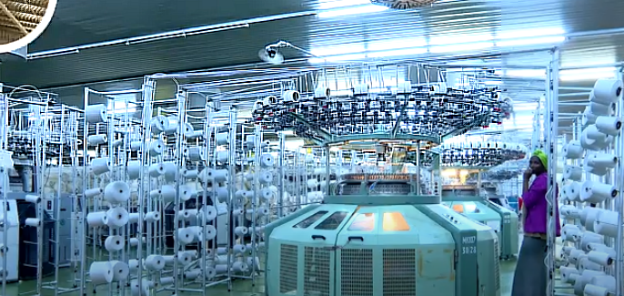
ADDIS ABABA – Ethiopia is intensifying efforts to expand its manufacturing sector as a cornerstone of its push for economic independence, commented a political economic analyst on Africa.
In an interview with Pulse of Africa (POA) English, Political Economic Analyst for Africa, Lawrence Freeman, said that Ethiopia’s new economic plan prioritizes manufacturing growth, with textile garment factories and a steel complex established. This demonstrates Ethiopia’s commitment to building its manufacturing base, a crucial component of a functioning economy.
Ethiopia’s manufacturing sector has seen a rise in employment, particularly with OMG Steel, which is essential for economic expansion. This employment of skilled and semi-skilled workers in garment areas provides jobs, skills, and income for the economy, he indicated.
Freeman mentioned that Ethiopia is making progress in manufacturing, a key sector in the economy similar to the United States. Despite Africa’s small manufacturing sector due to colonial and neocolonial policies, Ethiopia’s light manufacturing, such as textiles, is growing. OMG Steel, a more advanced form of industrial production, is needed for global trade.
If Ethiopia is going to become the hub, then there has to be a very clear priority by the government to increase industrial manufacturing capability, he suggested.
As to him, the Abbay Dam is producing electricity, which is already being exported to neighboring countries. To him, the economic integration has started, with the remaining hard work and commitment needed to follow through and make it happen.
OMG, which is now producing steel, is expanding into glass and aluminum. This is the kind of expansion that has been sought under the homegrown economic program that focuses on manufacturing, agriculture, mining, digital technology, and tourism. According to the analyst, manufacturing is the most important of them all.
“We will keep the agricultural economy because we need it. But we should transition to have farmers become workers, become more skilled workers. Your ability to manufacture your own products means you are not blackmailed or held hostage to other countries who want to sell cheap products and undermine your economy,” he emphasized.
Freeman suggested that infrastructure and manufacturing are vital for the achievement of economic sovereignty.
BY ESSEYE MENGISTE
THE ETHIOPIAN HERALD THURSDAY 29 MAY 2025




